In an age of instant digital communication Italian company Moleskine, renowned the world over for its traditional notebooks and loved by legions of ‘neo-nomads’, is a throwback to the days of diarists and the ‘café littéraire’. But while traditional in its roots, Moleskine is very much in tune with today’s consumer: and to underline that allure, the company has stepped into the airport food & beverage world for the first time. CEO Arrigo Berni explains why in an interview with Martin Moodie and talks compellingly about the big ideas that underpin the brand.

“A lifestyle brand, not a notebook maker. Not a notebook, a book yet to be written.”
That’s the elegant, lyrical way that one of the digital era’s most unlikely success stories describes itself.
We’re talking about Moleskine, known to its many devotees for its range of notebooks and, increasingly, a diverse selection of related products linked by kindred themes of art, culture, literature, geography and travel.
This “family of nomadic objects” includes the signature notebook, complemented by diaries, journals, bags, writing instruments and reading accessories. Now that nomadic family has moved into the world of food & beverage, through a contemporary reinterpretation of the historic concept of ‘café littéraire’ (a literary café where friends and colleagues have met down the ages to converse about life, literature, philosophy and art).
The first-ever Moleskine Café opened last December at Geneva Airport, in association with Caviar House Premium, as an integral part of the Swiss airport’s much-enhanced F&B programme.
The Moleskine Café is intended to capture the very essence of the travel experience, says CEO Arrigo Berni. As such, he’s convinced the new concept is ideally suited to the airport community. Given Berni’s track record, it would be a brave man who bets against him.
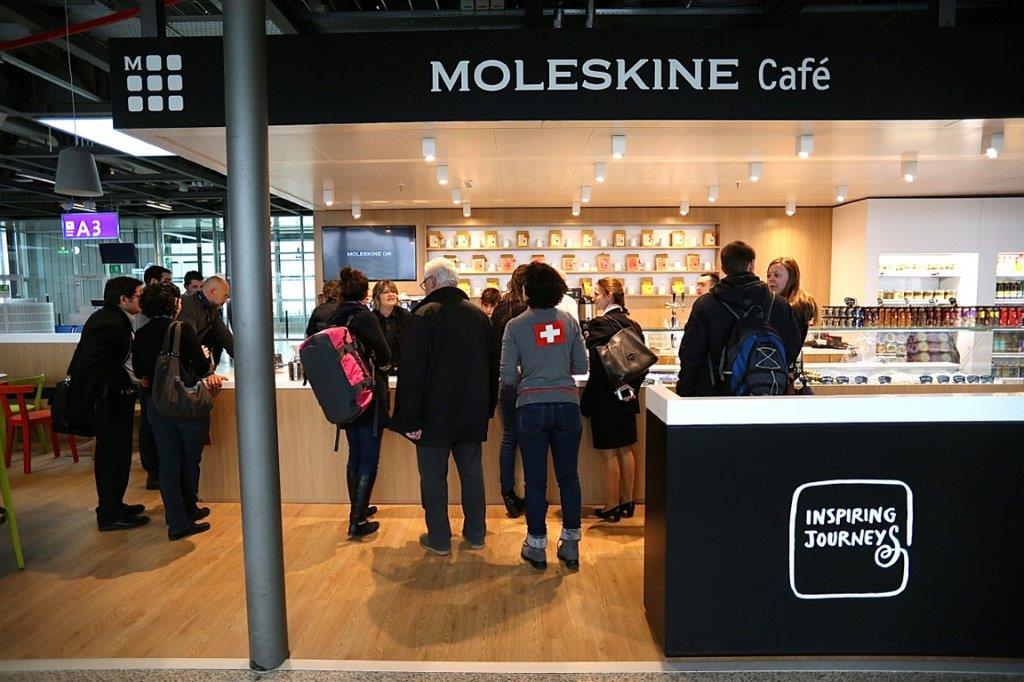
Here’s a company, after all, that has thrived in the instant communication age of Apple, Instagram, Facebook, Twitter and WeChat. A company making traditional products that (thanks to Berni who led the process) convinced private equity firm Syntegra Capital to shell out €64 million in 2006 to buy it. A company that went from a start-up in 1997 by a small Italian publishing house to a listing on the Milan Stock Exchange in 2013.
Moleskine’s revenues posted a compound annual growth rate of +19% between 2009 and 2014 – from €40.7 million to €98.7 million – and EBITDA surged +17% during the same period to €33.7 million.
Asked to sum up the philosophy of this intriguing brand, Berni slips into storytelling mode. “Let me tell you what attracted me to it,” he recalls. “It was the style of the collection, of the emotional bond that I saw existing back in 2006 between the brand and its small group of fans at the time. I’ve rarely seen anything like that in my life.
“I have been involved with some pretty strong brands, like Bulgari and Testoni, but the way people online were talking about this story and what it meant to them was really incredible. They talked of how inspired they felt, and they showed such passion in sharing this story with other like-minded people.”
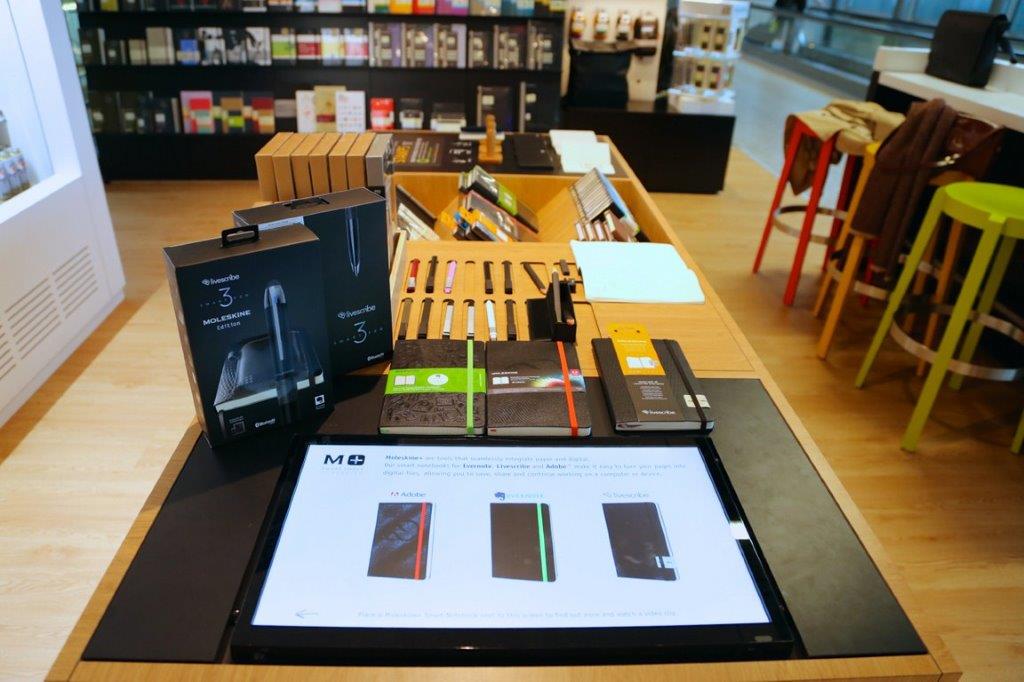
Coming from a strong marketing background, Berni was deeply impressed by the bond between the brand and the consumer – all achieved without any significant advertising spend. “What creates that connection, what is the DNA of the brand that then resonates with people? I believe it can be captured in three words. The first is talent, the second is exploration, and the third is authenticity. These are the three fundamental values that the brand stands for.
“Talent because we believe that there is talent in everyone. There is something that each one of us has that is worth cultivating, either on a personal level or by sharing it with others. Exploration, because talent needs to be explored. For talent to be cultivated, you need to be willing to engage in a journey, a journey within yourself, a journey that brings you in contact with other people, different cultures.
“And authenticity because – and this is one of the things that really excites and motivates me most – we don’t have a point of view that we want to impose on people. I’ve been associated with some pretty strong and exciting brands that you would classify as lifestyle/luxury, and I respect those brands a lot. But, ultimately, the process with buying those brands is that they define what they are and what they stand for. Then you as a consumer are basically left with only two options: either you embrace that point of view, or you refuse it.
“Moleskine is different in that it basically comes to you and says, ‘Are you interested in exploring yourself and the world around you?’ And if the answer is yes, we can be a companion and we can provide inspiration but ultimately it’s totally up to you to then define the way you want to look at the world. It’s not for us to define that, so that’s what we mean by authenticity: respecting people’s individuality and personal choices.”
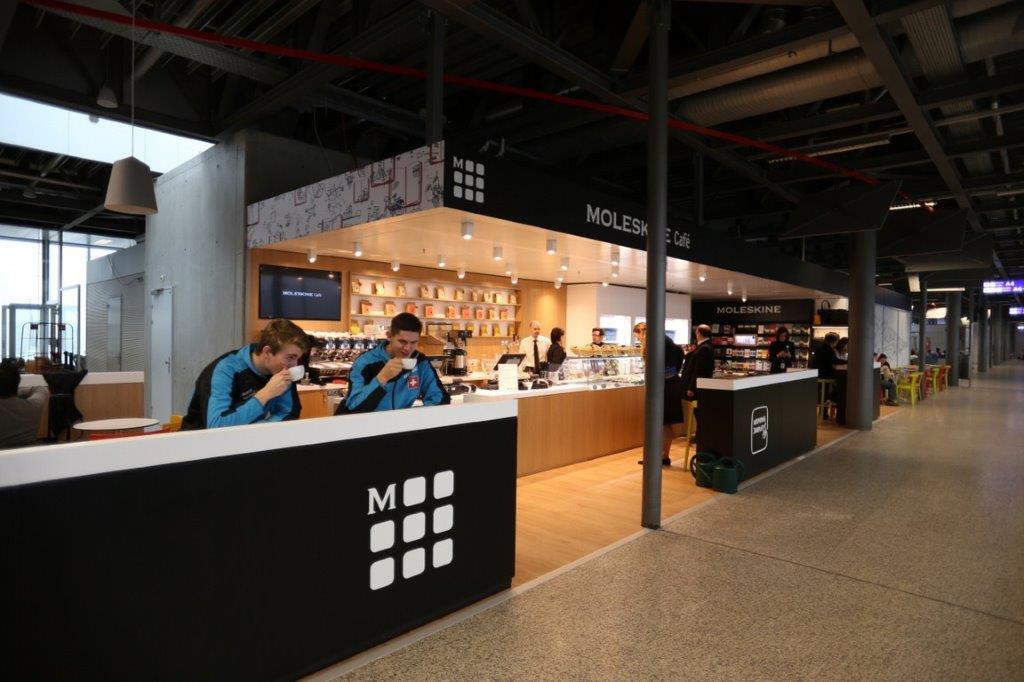
Berni says the brand’s values flow from its origins as a product long before it became a brand – one used by artists and literati, people who embody talent, exploration and authenticity.
“Moleskine was conceived first of all as an idea… the idea of bringing these values to defining the meaning of the human experience of a certain group of people in the mid-90s that was emerging – the ‘neo-nomads’ [defined by Urban Dictionary as “a new type of a nomad: a wanderer, someone without a fixed sense of belonging, a digitally geared man or woman on the move” –Ed].
“These were people engaged in travel, culturally sophisticated, of higher education, and in search of something that, besides the simple function [of the product], would help define them as belonging to this new segment.”
It’s a compelling proposition that helps explain the success of a young brand intrinsically related to handwriting amid the greatest upheaval in communication since the printing press was invented. It’s a brand that has not only thrived in that era but was actually born in it.
But are there dangers of extending the brand into new sectors such as food & beverage? What are Berni’s guiding principles in determining the next stages of the Moleskine journey?
“There are two fundamental principles that we try to follow,” he answers. “One I would call ‘customer permission’. We constantly engage with our clients to try and understand in which directions they’re willing to give us legitimacy to expand.
“The second principle is authenticity, in the sense of believing that we can add value by extending the brand. Obviously we must be convinced that this added value is consistent with what the brand stands for, and the Moleskine Café, I think, is a very clear example of the implementation of both principles.”
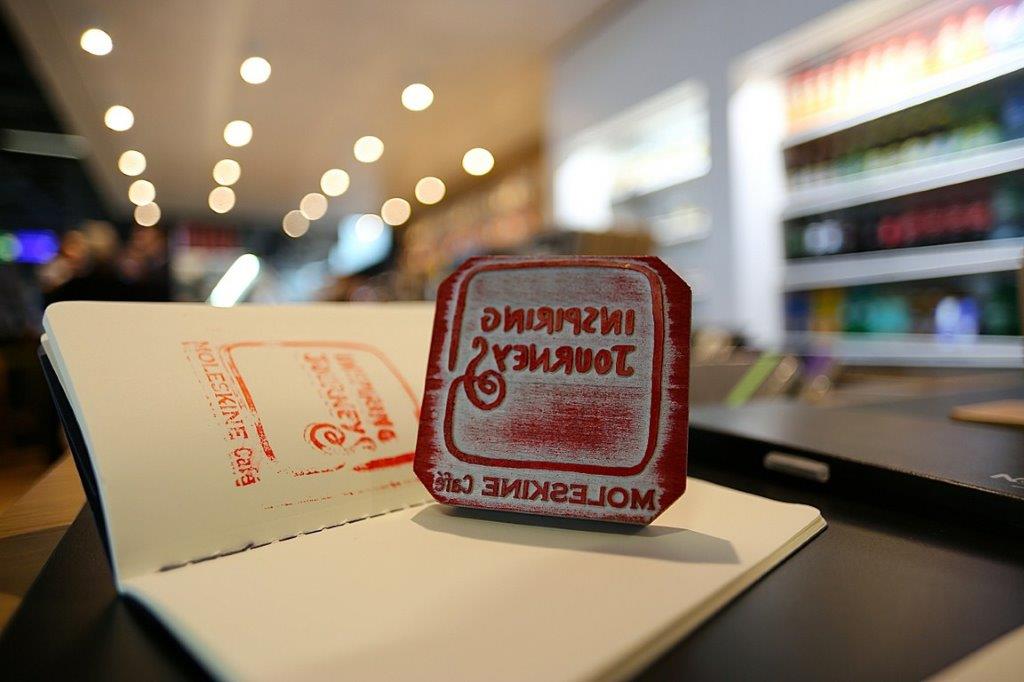
Berni cites the extensive documentation that was produced at the time of the company’s IPO. “In there you will find a chart where we showed the results of consumer research after asking people whether they felt that we could extend the brand into other new categories or that we should stay strictly within paper. And we asked what other categories we could possibly do.”
Some 85% of respondents approved of extending the brand’s scope. And about 30% mentioned areas such as entertainment, hospitality and travel-related activities. Cue diversification.
The concept of combining the Moleskine brand with a hospitality space made strategic sense, but how would it take shape? “I try never to forget something that one of my early bosses told me: ‘Arrigo, people don’t buy strategies, people buy executions.’ So you can have the most fantastic idea, but if you don’t execute it well, it’s not going to work.
“So, where is the added value of a physical space that has to do with entertainment and hospitality under the Moleskine brand? The easy answer for us is that it has to be a space where the hospitality dimension, which inevitably has to do with food & beverage, is combined with the values of talent, exploration, authenticity and creativity.
“So we’ll provide an area where people can socialise. Food & beverage and coffee in today’s world has become the place to go if you want to relax or interact, be by yourself or socialise. So you combine that with content, with graphics, with themes that will engage you at the creative level, which is what the brand stands for.
“When we got to the definition of this concept, we asked ourselves, ‘Okay, how is this in line with what the customer is telling us that we have legitimacy to do? Is this consistent with what the brand stands for? Is this distinctive and unique? Is this relevant?’ ”
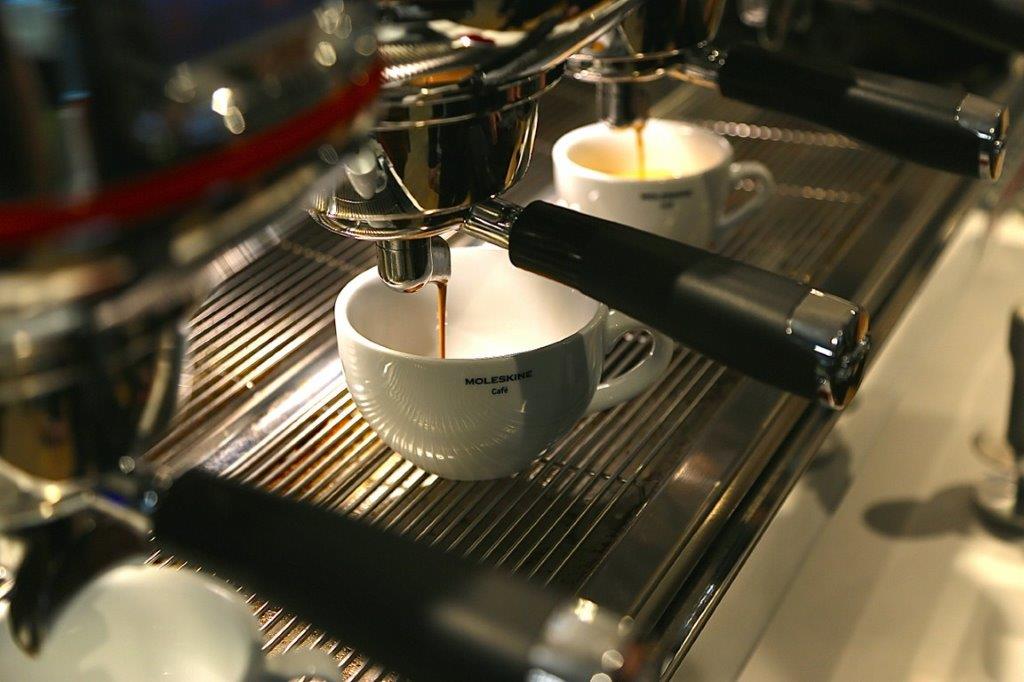
To find the answers, Berni looked around the world of F&B retailing. He found particular inspiration in the origins of Starbucks, the brand that redefined the coffee shop category. “What we’re talking about as a concept is not very different from what Starbucks did at the very beginning. The real novelty and one of the keys to the success of Starbucks, I believe, is the fact that besides a food & beverage experience, they came out with a concept that was distinctive – the idea of a home away from home, of creating a space where, yes, you could also enjoy a cup of coffee and a little snack. But most importantly, you could escape from the narrow confines of your little apartment in downtown New York or Seattle.
“The execution was consistent with this concept – the sofas, the homely feeling, the Wi-Fi and all that. So likewise, what we have here in Moleskine Café is a concept of combining a food & beverage experience with a certain type of atmosphere. It is distinctive and comparable with what you find in the market now, which very often is about great food and coffee experiences.
“You see, for example, a clear trend in coffee retailing towards adding value by creating a really sophisticated experience where coffee is ground and roasted on the premises. This trend towards making coffee and the experience of drinking coffee is similar to the experience of drinking a high-quality wine.
“That would not be the right thing for us to do, because we are not credible as coffee experts. But we are credible from the standpoint of bringing together these two dimensions – namely the coffee and food experience with a certain kind of environment – and the way we try to sum this up in conceptual terms.”
Those terms have been captured neatly in Moleskine Café’s tagline, “Your daily fix of inspiration”. At Geneva Airport there seem to have been plenty of fixes since last December’s opening. “We’re very happy with the way things are going in Geneva and very happy to have connected with Peter [Rebeiz, Chairman of Caviar House & Prunier and Caviar House Premium],” says Berni. “They’re fantastic partners.”
Rebeiz echoes the words, saying that Moleskine Café is trading ahead of budget and winning more and more repeat clients.
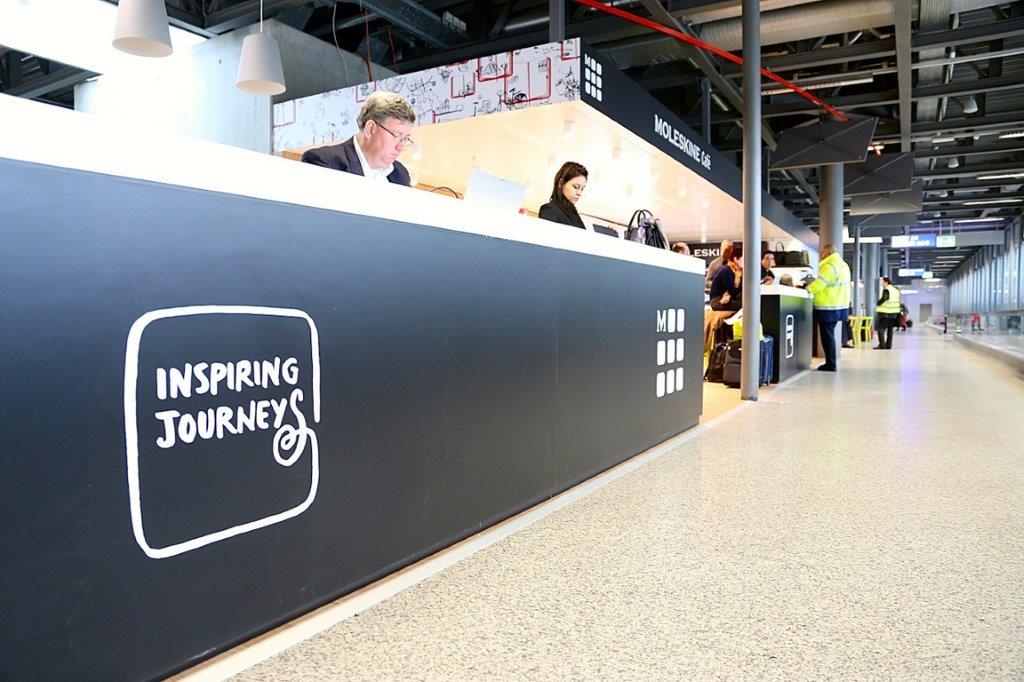
Opening the world’s first Moleskine Café in an airport was not an obvious choice, but the location and proven partner made Geneva a tantalising one, Berni says. With the business off to a strong start, the company is now eyeing expansion both on-airport and downtown.
Milan is the chosen location for the company’s first local-market Moleskine Café, due to open in mid-July, followed by a second outlet in the same city in September. “These are going to be our two pilots, if you like,” says Berni. “There’s going to be a learning curve. We want to experiment with different areas, one where there is more tourist flow and another where there is a little less traffic, but [with a consumer profile] more in line with our targets – a university college area and offices.”
Both will be between 150sq m and 200sq m, compared with around 80sq m for the airport outlet. “In these larger spaces we’re going to be able to fully experiment with the content and the dimension of the experience that we want to create. It’s going to be very important for us to see how people respond, so that we can then develop it more and also replicate it as much as possible in an airport environment.”
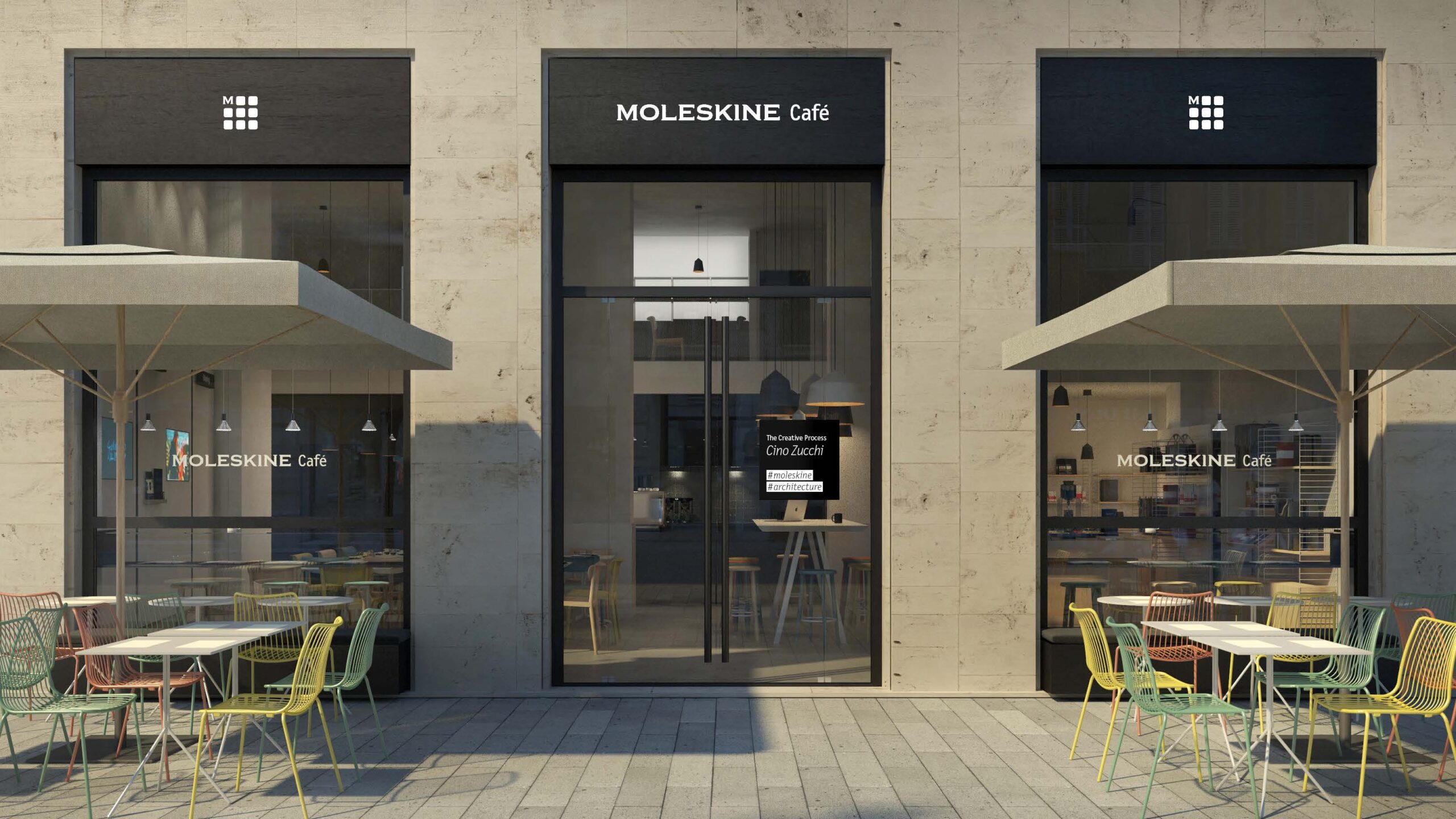

As our interview draws to a close, I ask Berni about his own philosophy on life and business and about the factors and beliefs that have influenced and driven him.
“I don’t like mediocrity – not in the sense that we all have to achieve some incredible, fantastic results, but in my feeling that we’re all called on this earth to be the best that we can,” he responds. “Whenever we give up on this, it’s really a shame. So play the game the best you can, and enjoy being the best you can be.
“I’ve been brought up to believe that if you do the right thing, then you’ll be rewarded for it,” he continues. “I believe within both personal life and in business it is – to paraphrase someone much more important than me – a matter of ‘Don’t ask what others can do for you, but ask what you can do for others.’ ”
The paraphrase is, of course, from President John F. Kennedy’s famous 1961 inauguration address, one of history’s most famous pieces of oratory, oft-quoted by students, academics, businessmen and politicians. One suspects nothing would give Arrigo Berni greater satisfaction than to see the words written down by lovers of great words for years to come in their Moleskine notebooks.








